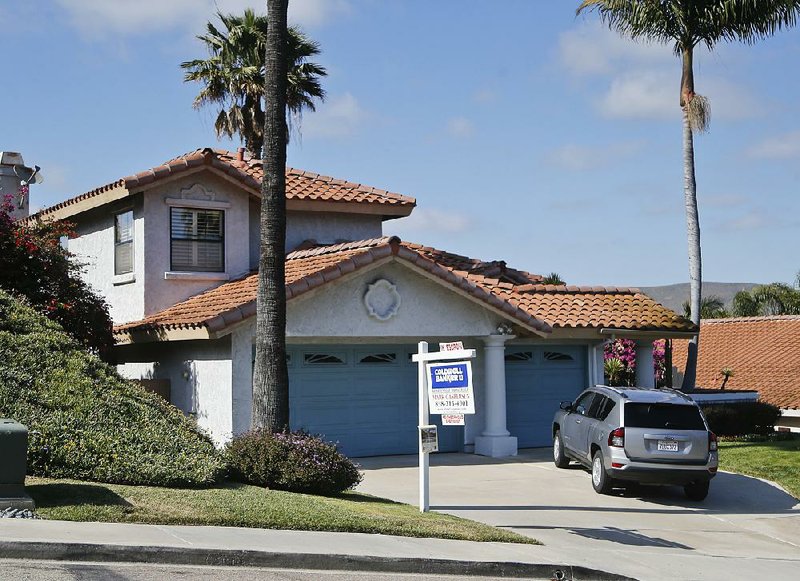The stock market's plunge after the British vote to exit the EU was bad for most people's retirement accounts but good for those looking to refinance mortgages. Even as the market has started to recover its losses and the flight to bonds' safety has eased, mortgage loan rates remain down.
Despite the low rates, growing pessimism over the direction of the economy is spilling over into home-purchase sentiment. Pending home sales -- those deals that are under contract but have not closed -- declined in May, marking their first annual drop in nearly two years. Rates may be low, but not many people are rushing out to make a big purchase such as a home with so much economic uncertainty. The group most likely to benefit from low rates is made up of homeowners seeking to refinance.
Bankrate.com, which puts out a weekly mortgage rate trend index, found that almost half of the experts it surveyed believe rates will remain relatively unchanged in the coming week while a third believe they will fall further.
According to the latest data released Thursday by Freddie Mac, the Federal Home Loan Mortgage Corp., the 30-year fixed-rate average fell to 3.48 percent with an average 0.5 point. (Points are fees paid to a lender equal to 1 percent of the loan amount.) It was 3.56 percent a week ago and 4.08 percent a year ago. Since the beginning of the year, the 30-year fixed rate has fallen nearly 50 basis points. (A basis point is 0.01 percentage point.) It has fallen 18 basis points in the past month alone.
The 15-year fixed-rate average sank to 2.78 percent with an average 0.4 point. It was 2.83 percent a week ago and 3.24 percent a year ago.
The five-year adjustable rate average dropped to 2.70 percent with an average 0.5 point. It was 2.74 percent a week ago and 2.99 percent a year ago.
To calculate average mortgage rates, Freddie Mac surveys lenders across the country at the beginning of each week.
"In the wake of the [British exit] vote, the yield on the 10-year U.S. Treasury bond plummeted 24 basis points," Sean Becketti, Freddie Mac chief economist, said in a statement. "This week's survey rate is the lowest since May 2013 and only 17 basis points above the all-time low recorded in November 2012. This extremely low mortgage rate should support solid home sales and refinancing volume this summer."
Mortgage applications declined this week, according to the latest data from the Mortgage Bankers Association.
The market composite index -- a measure of total loan application volume -- fell 2.6 percent from the previous week. The refinance index slipped 2 percent, while the purchase index dropped 3 percent.
The refinance share of mortgage activity accounted for 58.1 percent of all applications.
Long-term mortgage rates tend to track the yield on the 10-year Treasury note, which plummeted to 1.52 percent Wednesday from 1.73 percent a week earlier. It fell further to 1.48 percent Thursday morning.
"In light of the [British] vote and other recent economic news, MBA now predicts that the [Federal Reserve] will [raise interest rates] only once this year, likely in December," said Lynn Fisher, Mortgage Bankers Association vice president of research and economics. "If the financial market disruption from [the British vote] persists, the likelihood of even a December hike would be reduced."
Information for this article was contributed by The Associated Press.
Business on 07/01/2016

